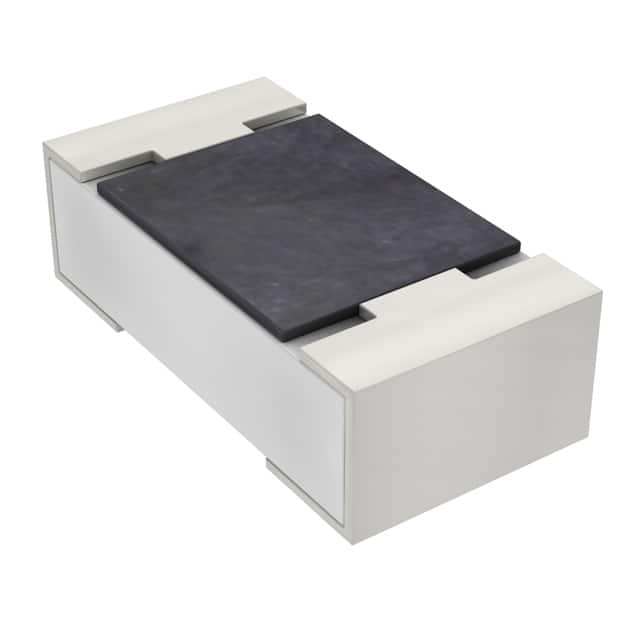Voir les spécifications pour les détails du produit.

NB-PTCO-029 Product Overview
Introduction
NB-PTCO-029 is a versatile electronic component that belongs to the category of temperature sensors. This entry provides an in-depth overview of NB-PTCO-029, including its basic information, specifications, pin configuration, functional features, advantages and disadvantages, working principles, application field plans, and alternative models.
Basic Information Overview
- Category: Temperature Sensor
- Use: Measuring and monitoring temperature in various applications
- Characteristics: High accuracy, wide temperature range, compact size
- Package: Small form factor, suitable for surface mounting
- Essence: Precise temperature sensing for electronic systems
- Packaging/Quantity: Typically supplied in reels or trays, quantity varies based on supplier
Specifications
- Temperature Range: -40°C to 125°C
- Accuracy: ±0.5°C
- Output Type: Analog voltage
- Supply Voltage: 3V to 5V
- Current Consumption: <1mA
- Response Time: <10ms
Detailed Pin Configuration
The NB-PTCO-029 sensor has a standard 3-pin configuration: 1. VCC (Power supply) 2. GND (Ground) 3. OUT (Analog output)
Functional Features
- Accurate temperature measurement
- Wide operating temperature range
- Low power consumption
- Small footprint for space-constrained applications
- Reliable performance in various environmental conditions
Advantages and Disadvantages
Advantages
- High accuracy
- Compact size
- Wide temperature range
- Low power consumption
Disadvantages
- Analog output requires additional circuitry for digital interfacing
- Limited temperature range compared to specialized sensors
Working Principles
NB-PTCO-029 operates based on the principle of resistance change with temperature. As the temperature changes, the resistance of the sensor element changes, leading to a corresponding change in the output voltage. This voltage is then used to determine the temperature value.
Detailed Application Field Plans
The NB-PTCO-029 sensor finds extensive use in various applications, including: - HVAC systems - Consumer electronics - Automotive industry - Industrial automation - Medical devices
Detailed and Complete Alternative Models
Several alternative models to NB-PTCO-029 include: - PT1000 temperature sensor - LM35 precision temperature sensor - DS18B20 digital temperature sensor - TMP36 analog temperature sensor
In conclusion, NB-PTCO-029 is a reliable and accurate temperature sensor suitable for diverse applications, offering high precision and a wide temperature range. Its compact size and low power consumption make it an attractive choice for designers seeking precise temperature monitoring solutions.
Word count: 410
Énumérez 10 questions et réponses courantes liées à l'application de NB-PTCO-029 dans les solutions techniques
What is NB-PTCO-029?
- NB-PTCO-029 is a technical specification that outlines the requirements for a specific type of component or material used in technical solutions.
What are the key characteristics of NB-PTCO-029?
- The key characteristics of NB-PTCO-029 include its material composition, dimensions, tolerances, performance specifications, and any specific testing requirements.
How is NB-PTCO-029 used in technical solutions?
- NB-PTCO-029 is used in technical solutions as a specified component or material to ensure compliance with performance and quality standards.
What industries commonly use NB-PTCO-029?
- Industries such as aerospace, automotive, manufacturing, and engineering often utilize NB-PTCO-029 in their technical solutions.
Are there alternative materials or components that can be used instead of NB-PTCO-029?
- Depending on the specific application and requirements, there may be alternative materials or components that can be used, but they must meet the same performance and quality standards outlined in NB-PTCO-029.
What testing and certification processes are associated with NB-PTCO-029?
- NB-PTCO-029 typically requires specific testing procedures and certification processes to ensure compliance with its specifications.
Can NB-PTCO-029 be customized for specific applications?
- In some cases, NB-PTCO-029 can be customized for specific applications, but any modifications must still adhere to the core requirements of the technical specification.
What are the potential benefits of using NB-PTCO-029 in technical solutions?
- The potential benefits of using NB-PTCO-029 include improved performance, reliability, and interoperability within technical solutions.
Are there any limitations or considerations when applying NB-PTCO-029 in technical solutions?
- It's important to consider factors such as environmental conditions, compatibility with other components, and any potential obsolescence issues when applying NB-PTCO-029 in technical solutions.
Where can I obtain the latest version of NB-PTCO-029 and related documentation?
- The latest version of NB-PTCO-029 and related documentation can typically be obtained from the issuing organization or through authorized distributors and resellers.

